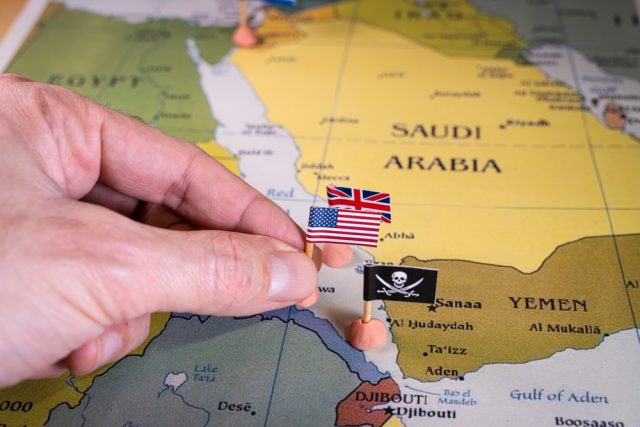
The balance of the Arabian Peninsula in the hands of pirates. The Houthis and the weight of Yemen in geopolitics.
While the international situation is incandescent, to put it mildly, there are those who continue to make heavy demands, truly putting the stability of global balance at risk. The fronts already open are the well-known ones: the Russian invasion of Ukraine, the Israeli operation on Gaza as a reaction to the Hamas attacks on 7 October, and the increasingly strong tension (exacerbated by the electoral results) between China and Taiwan.
However, there is a situation that often goes unnoticed and is instead crucial. Yemen has been experiencing a situation of instability for years which now risks becoming unsustainable. In fact, a part of the country was controlled by the regular government – and supported by the United States and the European Union – before Hadi, and since 2022 governed by Rashad al-Alimi as president of the Presidential Board of Directors; the other part is in the hands of the Houthi rebel group, led today by Mahdi al-Mashat.
The Houthis’ guerrilla activity began in 2004: several years earlier the group, which takes its name from the family of the founder Muhammad al-Huthi, had created several school clubs renamed “Believing Youth”, with the aim of strengthening the feeling Shiite in a country governed by the slim (53%) Sunni majority. The situation worsened with the American military intervention in Iraq: at that point anti-Americanism and anti-Israelism became recurring themes, leading to armed revolts against the regular government.
Since 2015, the Houthis have governed the country’s capital, San’a, putting the management of the country in crisis. Yemen is a very delicate state given its geographical position: first of all, it is impossible not to approach the Yemeni coast to pass along the Suez Canal, secondly, Yemen borders Saudi Arabia, which has often willingly intervened militarily just to to quell the riots as well as to strengthen the border and avoid terrorist infiltration.
The maritime position has put the Houthis in a position to become real pirates, who take advantage of the worst-equipped ships to plunder them and raise further funds to support the civil war. Since 7 October, supporting Hamas, they have intensified this piracy activity, certainly putting Western states in crisis but also several Arab countries, Egypt and Iran above all.
Missiles were also recently fired at ships headed for Iran, the first attack on the nation considered their financier. It was probably an indistinct attack, however the strengthening of the Houthis is not good news.
Ansar Allah, deputy head of the Media Authority, threatened several states including Italy by stating that participating in Aspides – the European Union mission to defend Israel in the waters of the Red Sea – means a direct clash with Yemen.
The reality is that Yemen in itself does not represent a danger either for Italy or for the West or even for Israel, which paradoxically finds in them a further international problem which however distracts the Arab world from the situation Palestinian. What is worrying, however, is if Houthi threats become sensitive to Saudi Arabia and Oman.
The two states, in fact, are still closely linked to the United States and on several occasions have maintained the balance in the Arabian Peninsula and in the delicate Middle Eastern scenario. If the Saudis also have particular ties with the BRICS, Oman instead represents one of the most particular countries: it is the only one with a majority that is neither Sunni nor Shiite but Ibadi (an “Islamic third way” that repudiates violence in every way). and no cases of violence due to apostasy have ever been recorded, which is very rare in the Islamic world.
To date, the border between Yemen and Oman has never experienced moments of crisis, also because the Sunni part borders Oman and is therefore directly controlled by pro-Western forces. A collapse of the country and the seizure of power by the Houthis would make the Arabian Peninsula a real powder keg.



 Subscribe
Subscribe